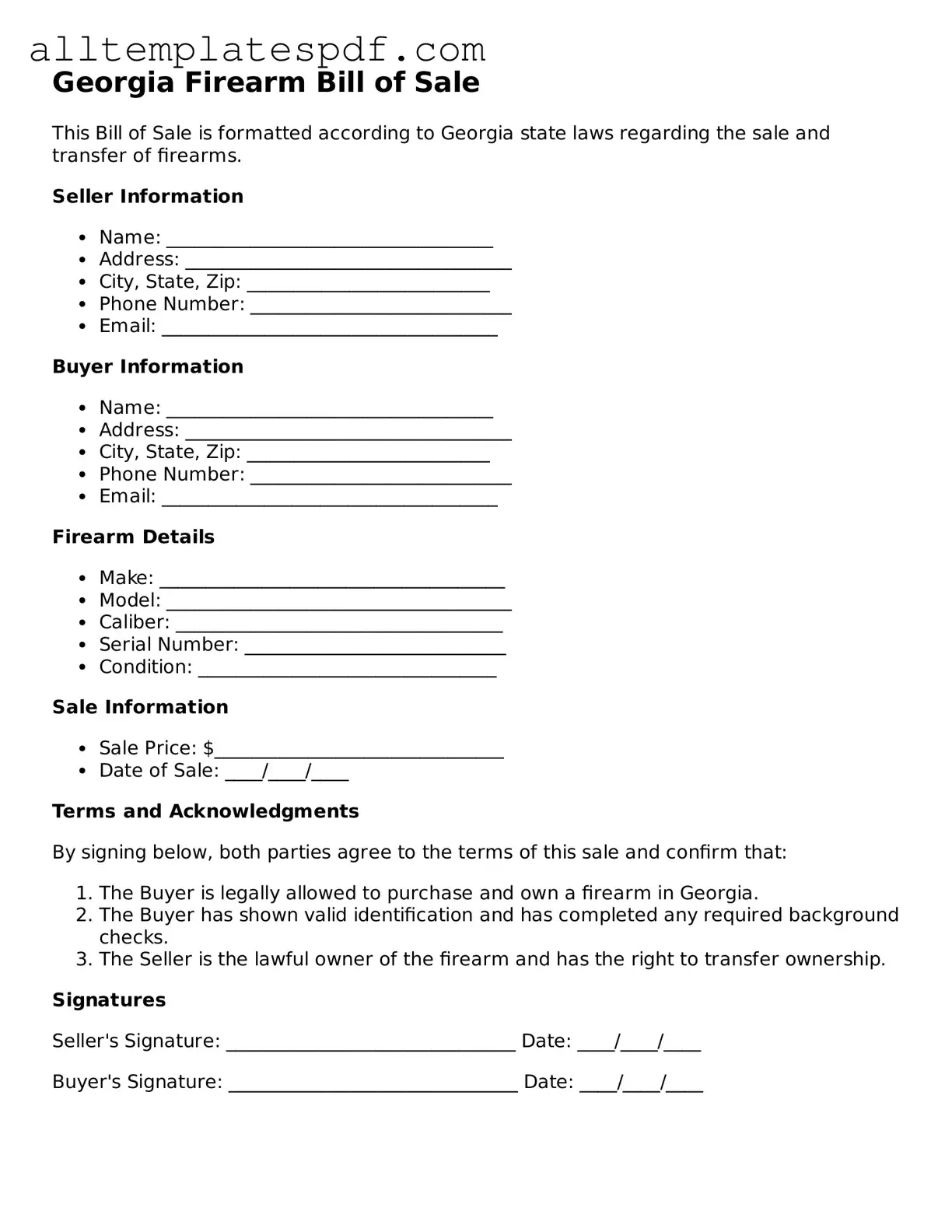Filling out the Georgia Firearm Bill of Sale form is an important step in the legal transfer of ownership for firearms. However, many people make mistakes that can complicate the process or even lead to legal issues. One common error is failing to provide accurate personal information. This includes names, addresses, and identification numbers. If any of this information is incorrect, it can create confusion and may result in the transfer being deemed invalid.
Another frequent mistake involves not including all necessary details about the firearm itself. It’s essential to describe the firearm accurately, including the make, model, caliber, and serial number. Omitting any of these details can lead to disputes about the weapon's identity and ownership in the future.
Some individuals overlook the importance of having both parties sign the form. A Bill of Sale is not legally binding unless it is signed by both the seller and the buyer. Without signatures, there may be no proof of the transaction, which can complicate ownership claims later on.
Additionally, failing to date the document is another mistake that can have significant consequences. The date of the transaction is crucial for establishing the timeline of ownership. If a dispute arises, a dated Bill of Sale can serve as vital evidence in proving when the transfer occurred.
Many people also forget to include the method of payment. Whether it’s cash, check, or another form, documenting how the transaction was completed is important. This detail can help clarify any misunderstandings regarding the sale and protect both parties.
Another common oversight is not checking local laws and regulations. While the Bill of Sale is a standard form, some local jurisdictions may have specific requirements that need to be met. Ignoring these can lead to complications that could have been easily avoided.
Some individuals fail to keep a copy of the completed Bill of Sale for their records. Retaining a copy is vital for both the buyer and the seller. This document serves as proof of the transaction and can be referenced in case of future disputes or legal inquiries.
Lastly, people sometimes neglect to verify the buyer’s eligibility to purchase a firearm. In Georgia, it is the seller's responsibility to ensure that the buyer is legally allowed to own a firearm. Taking the time to confirm this can prevent serious legal ramifications for both parties involved.

